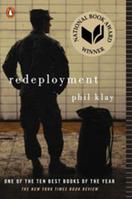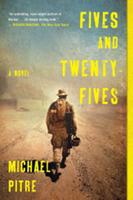What I wanted to do was hopefully complicate the image of veterans of the Iraq War.... At no point did I think that I would be defining the veteran experience.... I was pretty skeptical of anybody who thought they could. --Phil Klay, 2014 National Book Award winner for his story collection Redeployment.
 I didn't serve in the military, but my late father was a World War II combat veteran and three of my brothers spent, among them, more than 30 years in the Air Force. So we are, in that sense, a military family. The meaning of Veterans Day is (or, in my father's case, was) markedly different for each of these men, and they honor(ed) the day accordingly.
I didn't serve in the military, but my late father was a World War II combat veteran and three of my brothers spent, among them, more than 30 years in the Air Force. So we are, in that sense, a military family. The meaning of Veterans Day is (or, in my father's case, was) markedly different for each of these men, and they honor(ed) the day accordingly.
I respect those differences, and was reminded of them again a couple months ago when NPR featured a piece headlined "Soldiers Turned Authors Want You to Know: Our Books Don't Speak for All Vets." The works highlighted, some of which I have read and loved, are by post-9/11 vets, but the narrative voices transcend the limits of time frames.
 This compact yet complex reading list includes Phil Klay's Redeployment, Michael Pitre's Fives and Twenty-Fives, Elliot Ackerman's Dark at the Crossing, Matt Gallagher's Youngblood, Roy Scranton's War Porn and the graphic novel The White Donkey, written and illustrated by Maximilian Uriarte.
This compact yet complex reading list includes Phil Klay's Redeployment, Michael Pitre's Fives and Twenty-Fives, Elliot Ackerman's Dark at the Crossing, Matt Gallagher's Youngblood, Roy Scranton's War Porn and the graphic novel The White Donkey, written and illustrated by Maximilian Uriarte.
"I don't think anyone is probably particularly interested in writing that offers a bunch of platitudes on the war," Ackerman, who saw combat duty in Iraq and Afghanistan, told NPR. "I think the best writing kind of leaves space for the reader to come to their own conclusions, because if you introduce too much of yourself, you're going to crowd out the reader."
Gallagher, who led a platoon in Iraq in 2007, observed: "These are real people being heroes, being villains, being cowards, sometimes all three of those things in the same day, because that's real life." --Robert Gray, contributing editor

